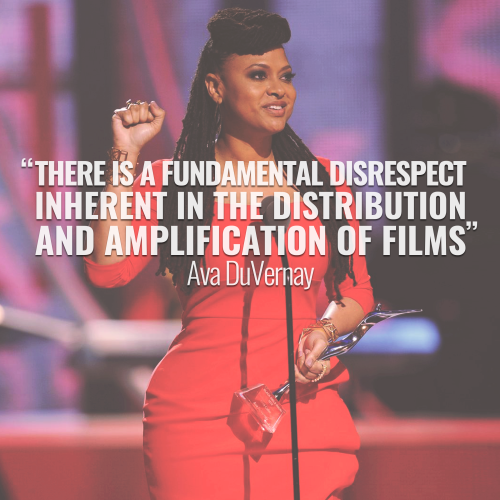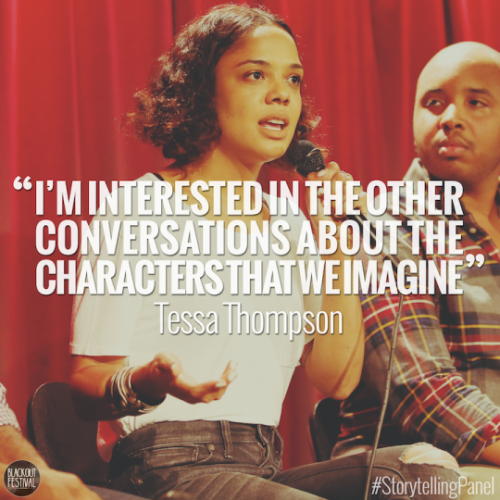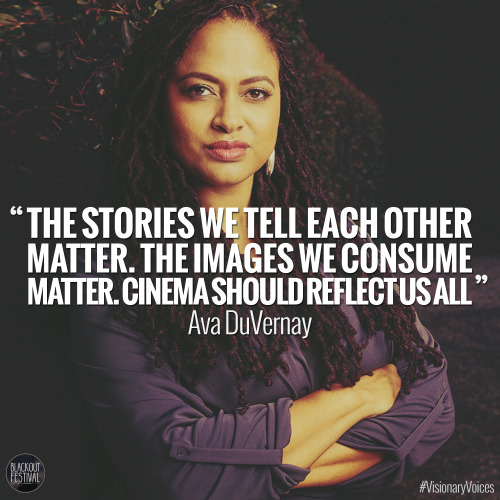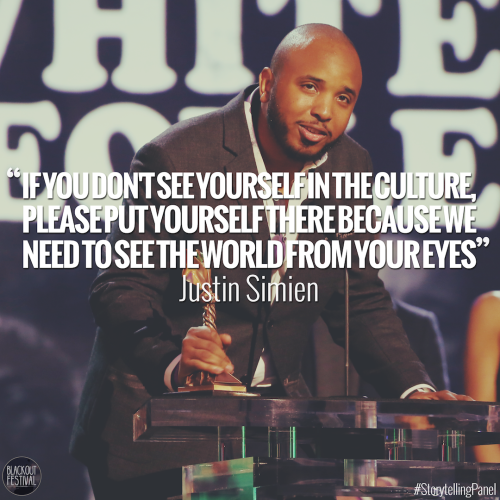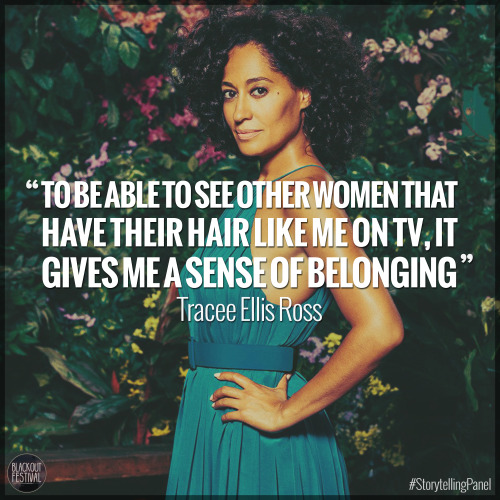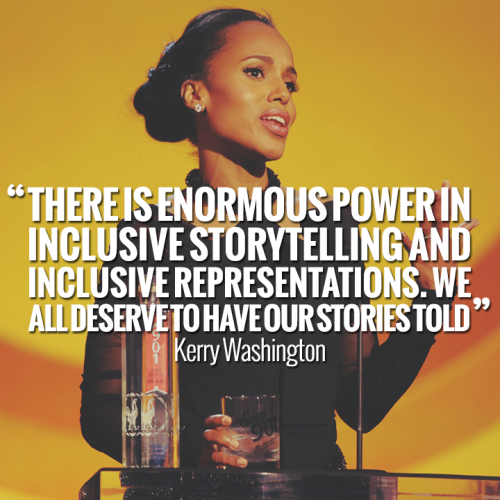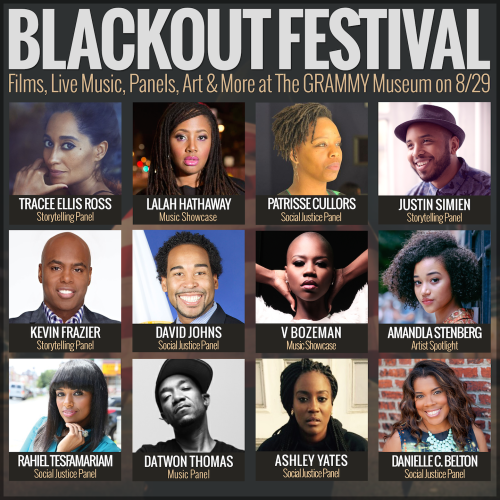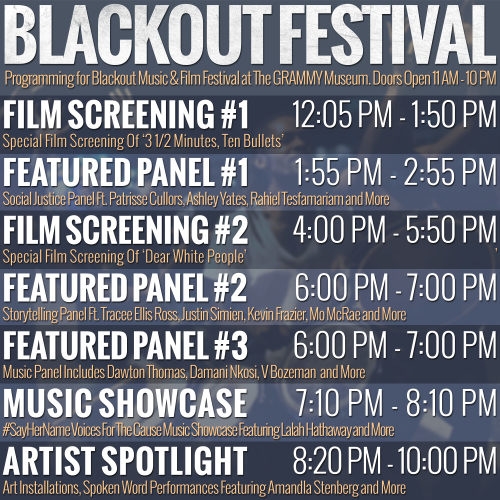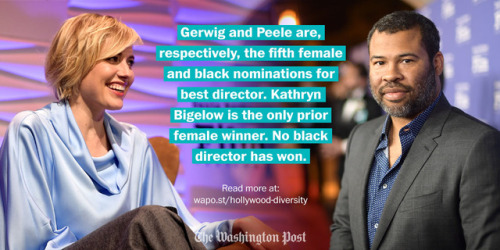#hollywood diversity
“There’s a generation of filmmakers of color and women whose primary concern is that no one will see their work. And that is a huge barrier. They’re asking, ‘Why make something if no one will see it?’ Right now, there is a fundamental disrespect inherent in the distribution and amplification of films. There is a cinema segregation in how films are seen and not seen. What we’re saying is, we’re not going to depend on those things anymore.” Ava DuVernay Discusses Diversity in Hollywood and ARRAY: http://lat.ms/1UL8slq
Watch Highlights From Our Blackout Festival Storytelling Panel Featuring Tessa Thompson, Nate Parker, Justin Simien, Tracie Thoms and More: http://bit.ly/1VUhfyT
“After five years of providing a platform for independent African-American filmmakers through her grassroots film distribution association, African-American Film Festival Releasing Movement (AFFRM), Ava DuVernay announced on Tuesday that it will relaunch as ARRAY in order to expand its focus for filmmakers she sees as too often overlooked. Inspired by her experiences meeting filmmakers across the globe while promoting ‘Selma,’ the Oscar-nominated director says she will apply the same tactics from AFFRM into ARRAY.” Continue Reading The Huffington Post’s Article on Ava and ARRAY: http://huff.to/1Nw4Akf
Post link
The potent power of inclusive storytelling can not be expressed enough. For people privileged enough to see themselves reflected on TV, movie screens and magazine covers in a positive and nuanced light, it is easy to dismiss the impact of media representation. Shout to Ava DuVernay and her Company AFFRM for promoting voices from all backgrounds and seeing the beauty and value of diversity in storytelling. We’re honored to have them as an official partner of Blackout Music & Film Festival. Join at Blackout Music & Film Festival this Saturday: http://bit.ly/1NviXBK and Read the Articles Below:
- “Long before “Selma” came along, its director, Ava DuVernay, was working to help distribute films with black themes through the African-American Film Festival Releasing Movement. As she said in 2011, explaining why independent black artists needed the organization, “No one is ever going to care about their film except the people it’s made for, which is, black folks.” On Wednesday, hoping to raise awareness of AFFRM’s distribution label, Array, Ms. DuVernay enlisted more than 40 black filmmakers to share insights and advice via Twitter. Using the hashtag #ARRAY, the “Rebel-a-Thon” began in the morning with Debbie Allen, among others, and has progressed throughout the day with veteran and newcomer directors alike taking turns every hour or so” Continue Reading The New York Times article: http://nyti.ms/1JbRfLA
- “And that is just so important, not only because she called out Hollywood for a status quo that refused to give such complex roles as that of Annalise Keating to women of color, but that she called out Hollywood for a status quo that refused to give such complex roles to a woman who is almost in her 50’s. Ageism and racism still run rampant in America today, something that has come to the forefront of American consciousness in the wake of the controversy surrounding the 2015 Oscars nominees, and for Davis to call that out in her speech was truly beautiful. How To Get Away With Murder does something that very few other shows are doing on TV right now, and to have a lead like Davis makes it even better.” Continue Reading Bustle’s Article Here: http://bit.ly/1MO0thB
- “The auteur, and Paste’s 2014 Film Person of the Year, invites you to join her community of film artists, film advocates and film lovers who want to experience true diversity both in front of and behind the camera.” Continue Reading Paste Magazines Article Here: http://bit.ly/1KkPzzz
- “I started writing this movie some 10 years ago as an impulse because I didn’t really my story out there in the culture. I didn’t see myself reflected back at me in the films I love or the stories that resonated for me. I tried to put myself in the culture. That can be difficult when, along the way, there’s really nothing there to tell you that you belong there. If you don’t see yourself in the culture, please put yourself there, because we need you. We need to see the world from your eyes” Justin Simien Wins the Award for Best First Screenplay at the Spirit Awards. Watch His Full Speech Here: https://youtu.be/JpBPTVejG2w
- “I am keenly aware of how we as women (and most specifically women of color) are presented and portrayed in media and how we present ourselves. And here was my mama from almost 30 years ago on the surface doing something that often snags me in videos today but why did I feel differently about it?” Continue Reading Tracee Ellis Ross’ Article Here: http://bit.ly/1hB34Qz
- “Black Women Are Leading a Cultural Movement through TV” For Harriet:http://bit.ly/1h4JAmq
- “We need stories for and about black youth. We need stories where they are painted in the same light as their white counterparts. “I turned to books to figure out how to navigate life and relationships,” said I.W. Gregario, a founding member of the We Need Diverse Books campaign. As a result of not seeing her identity as an Asian woman represented in the literature she loved, she says she became self-hating. We live in a society that sees black kids as both less innocent and older than white children. A study published in the Journal of Personality and Social Psychology found that “black boys can be seen as responsible for their actions at an age when white boys still benefit from the assumption that children are essentially innocent.” The U.S. Department of Education revealed in a report that black children face discrimination as early as pre-school. This systemic dehumanization has life-altering results in the case of, say, Dajerria Beckton who was tackled at a pool party, or the life-ending case of Tamir Rice” Continue Reading For Harriet’s Article Here: http://bit.ly/1MHfHWX
- “Even before his tragic death at the hands of Officer Darren Wilson, though, Brown’s chances of being seen—or seeing himself—as a hero were already limited. The image of a young black man, prostrate in the street, is one we’re much more accustomed to seeing in Hollywood movies than we are a black man working to save humanity. Marvel Studios, the folks behind Iron Man and The Avengers, recently announced they’d be releasing Black Panther—their first black superhero movie—in 2017. It’ll be the kind of film Michael Brown saw very little of in his lifetime. It’s hardly a surprise that many people of color were thrilled by Marvel’s announcement, or that the Internet recently erupted in jubilant conversation around the new Star Wars: The Force Awakens trailer—which opens on a black man dressed as a stormtrooper. There are huge portions of society, including the more than 50 percent that are women, who are starved for this kind of representation in our grandest forms of entertainment” Continue Reading Bright Ideas Magazine’s Article Here: http://bit.ly/1EFp4hU
- “I am a storyteller. I write movies, short stories, and poems. I’ve spent years trying to understand the ways that narratives underscore society, how the stories we create, retell, and amplify influence our thinking, our actions, our ways of life. I cannot tell you how many times someone has had a pre-packaged idea of me before I even opened my mouth or entered a room. These people had a “black woman narrative” already constructed and were waiting for me to fulfill it. When I didn’t, they appeared confused. I just breathed and existed. But sometimes, even doing that is cause for violence and brutality. Because narratives of black beasts, black demons, of black criminals are so strong, that just breathing, and existing, might get you killed” Continue Reading Indiewire’s Article Here: http://bit.ly/1E8nyKC
Post link
This year’s Oscar nominees are more diverse, but has Hollywood really changed?
#OscarsALittleLessWhite, but the numbers show that overall progress in Hollywood has been stagnant over the past 10 years. Out of 665 top directors from 2007-2017, only 43 were women. Of those, only 7 were women of color.

Post link

